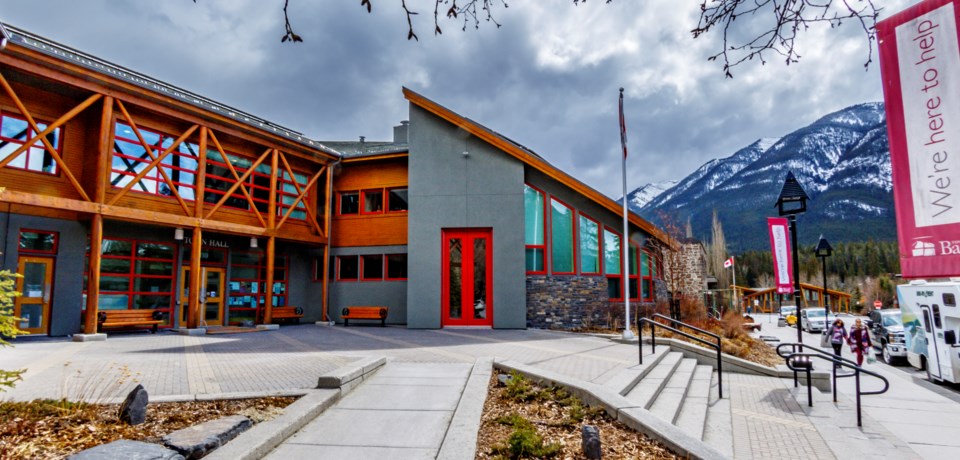BANFF – Banff council plans to review fees that businesses pay to the municipality instead of building their own required housing in a bid to better deal with the tourist town’s housing crunch.
At a governance and finance committee meeting on Nov. 23, Councillor Peter Poole convinced his colleagues to consider options for setting fees for cash-in-lieu of housing, including one based on appraised prices of new housing construction.
Administration will bring back a report looking at the housing policy and associated cash-in-lieu fees for review in the first quarter of 2021.
Coun. Poole said there is a need to review this if the long-term housing imbalance is to be corrected, calling the current cash-in-lieu fees for required housing an “unfair subsidy.”
“We are trying to encourage housing supply, and yet if I’m to do a development, it’s cheaper for me to pay the Town this roughly $35,000 per bedroom than to go ahead and build the commensurate amount of housing,” he said.
“That means I would hire new employees that would augment the demand for housing, and supply of housing would be slow in catching up.”
The Town of Banff requires construction of new housing in conjunction with any new commercial development, or intensification of existing commercial development.
There are three ways of doing this – the business can build its own housing; partner with a third party developer to provide housing and credit that towards commercial development, or pay cash to the municipality in lieu of building housing.
On Monday, the governance and finance committee was reviewing the cash-in-lieu of required housing rate as part of its annual review of other municipal fees. The fee schedule for 2021 is expected back before council on Dec. 14 for approval.
Currently, the cash-in-lieu fee for required housing is proposed to go from $34,286 per bedroom this year to $34,732 in 2021, based on Calgary’s construction price index.
Planning and development department officials say the cost to build a bedroom in Banff depends on how a bedroom is defined, but noted the cost of construction ranges from $400 and $600 per square foot.
“If you define a bedroom as 100 feet of space for someone to sleep in … then that bedroom costs between $40,000 and $60,000,” said Darren Enns, the Town of Banff’s director of planning and development.
“If you were to say the bedroom is something that comes with a much larger envelope – things like hallways and washrooms and kitchens and underground parkades – then that number gets exponentially higher in the hundreds of thousands of dollars.”
Coun. Poole was pleased council will have a discussion on the housing policy and associated fees in the new year, but was unsuccessful in his attempt to get his council colleagues to increase the cash-in-lieu fee to $80,000 in the interim.
He said he had experience of building housing associated with commercial projects – and in fact built more housing than was required – and this increase is a small step toward addressing the imbalance.
“That was some time ago and we still have housing supply problems in this community,” he said.
“The more that housing demand is goosed without the commensurate housing supply, the harder it is for people paying rent in this community.”
Mayor Karen Sorensen said she respected Poole’s line of thinking, but couldn’t support the increase to $80,000 in the fee schedule ahead of the discussion in the first quarter of 2021.
“I’m just not convinced what the number is,” she said. “I will feel better in a few months getting more information.”
While voicing concern about a lack of housing, Coun. Grant Canning said the other side of this debate is that small businesses trying to open up in Banff already face significant barriers.
“Some of our larger employers – those who have significant resources behind them who have the option of perhaps buying a vacant piece of land or even taking down an old house and turning it into staff accommodation – have that option and I think that is certainly beneficial for them to provide their own housing,” he said.
“However, if you are a true small business – someone who has an idea and is looking at just taking over a small piece of commercial space somewhere in town – to try to start something up, when you start going down the road of all these additional fees, whether they are with absolutely best of intentions or not, the truth is it becomes harder and harder and harder for these true small businesses to even attempt to do their dream, let alone actually implementing it properly, whether it be borrowing money, coming up with the cash etc.,” he added.
“I am not saying we shouldn’t necessarily look at these fees in lieu, but under the same token, it’s really important to recognize this could well be very detrimental to anyone who is actually interested in looking at creating a small business.”
In response, Coun. Poole said there are bigger barriers to small business in this community such as landlord charging key money and the overall price of land in the Bow Valley.
“If we want to solve the problem for small businesses, the way to do it is by creating economic programs that enhance opportunities for new entries to our area. That’s absolutely the right thing to do,” he said.
“I would be more than happy to work with you on finding ways we could provide incentives for small entrepreneurs, but let’s do that on a policy that works for them.”




